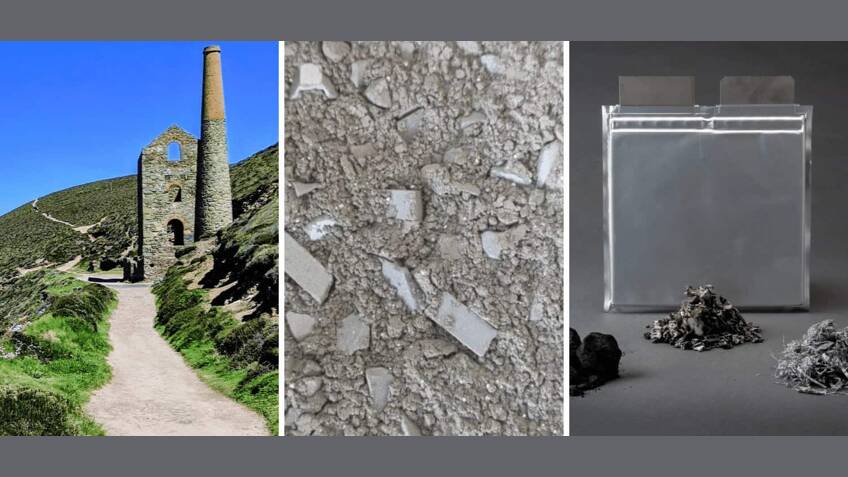Register for free and continue reading
Join our growing army of changemakers and get unlimited access to our premium content

From cleaner lithium production to battery recycling technology, discover exciting innovations paving the way for a sustainable and scalable EV industry
The age of the electric vehicle (EV) is upon us. More than 10 million electric cars were on the world’s roads in 2020 according to the International Energy Agency. And with them comes a whole new industry.
The current infrastructure supporting fossil fuel-powered vehicles grew up over the course of a century. But the infrastructure for electric vehicles will need to be rapidly scaled-up over the next decade. This will involve the creation of a global supply chain that will rely on the sourcing of raw materials, the design and manufacture of batteries, the roll-out of charging infrastructure, and the development of battery recycling technologies.
How this global system will fit together at scale remains an open question. But we are already seeing innovations that point towards the direction of travel. And perhaps the most interesting solutions are not the vehicles themselves, but those that relate to all the elements that go into making, maintaining, and recycling them. The key challenge will be ensuring that all this infrastructure can be delivered in a sustainable manner that minimises environmental harm.
Raw Materials

BATTERY-GRADE LITHIUM PRODUCED FROM GRANITE
Most EV batteries are made from lithium. But commercially-produced lithium is normally extracted using processes that are harmful to the environment. And Europe hasn’t traditionally produced lithium at all – relying instead on imports from countries like Australia, Chile, and China.
To reverse this situation, UK startup British Lithium has begun producing lithium from a granite quarry in Cornwall using a new, environmentally-friendly process. This process requires much lower temperatures than traditional mining and manufacturing methods. Salt is also used in place of toxic chemicals. Read more.
Battery Design

THE WORLD’S FIRST 10-MINUTE CHARGE EV BATTERY
One of the biggest limiting factors for EVs is that they take longer to ‘refuel’ than their petrol-powered counterparts. To tackle this, Israeli startup StoreDot has revealed new, fast-charging battery cells. The prototypes can go from zero to fully charged in just 10 minutes. In addition to fast charging, StoreDot explains that the batteries help eliminate range anxiety by enabling more miles-per-minute of charge. Read more.
Charging Infrastructure

NEW TECHNOLOGY COULD REVOLUTIONISE ELECTRIC VEHICLE CHARGING
Today’s standard EV charging technology is not fit for the future. Over time, the same technology that is used to charge mobile phones and laptops has been adapted piecemeal to fit the requirements of the EV industry. As a result, existing chargers face problems of scalability and reliability – with charging points regularly shutting down and going out of use.
UK startup Petalite has developed new charging technology specifically designed for EVs. The system is three times more robust than traditional chargers and is designed to meet a target of 99.99 per cent uptime. It is also cheaper and can be scaled more easily. Read more.
Battery Recycling

NEW EV BATTERY RECYCLING PROCESS MAINTAINS PURITY OF METALS
As the use of lithium-ion batteries increases, so too does the problem of what to do with them at the end of their life. A team led by researchers from Michigan Technological University (MTU) has created a new way to recycle the metals in lithium-ion batteries using a process popular in the mining industry. Extracting the metals from batteries is an important step towards achieving a completely circular EV battery life cycle. And scientists are already looking for ways to recycle and reuse the other parts of lithium-ion batteries. Read more.
Future Technology

PARTNERSHIP TO TEST MAGNETISABLE ROAD CONCRETE FOR ELECTRIC CHARGING
A major barrier to the adoption of EVs is the fear of running out of power before reaching a destination. While at present EVs rely on charging points, an increasingly attractive solution is the idea of roads that could charge vehicles as they drive.
Indiana’s Department of Transport (INDOT) is working with Purdue University and German wireless charging company Magment to explore the possibility of embedding recycled ferrite particles into road concrete. Such ‘magnetisable’ concrete could offer an economical way to deliver ‘on-road’ charging. Read more.
Words: Matthew Hempstead
To keep up with the latest innovations in sustainable investment and beyond, sign up to our free newsletters or email info@springwise.com to get in touch.
This article was first written in May 2022 as part of our media partnership with Edie



